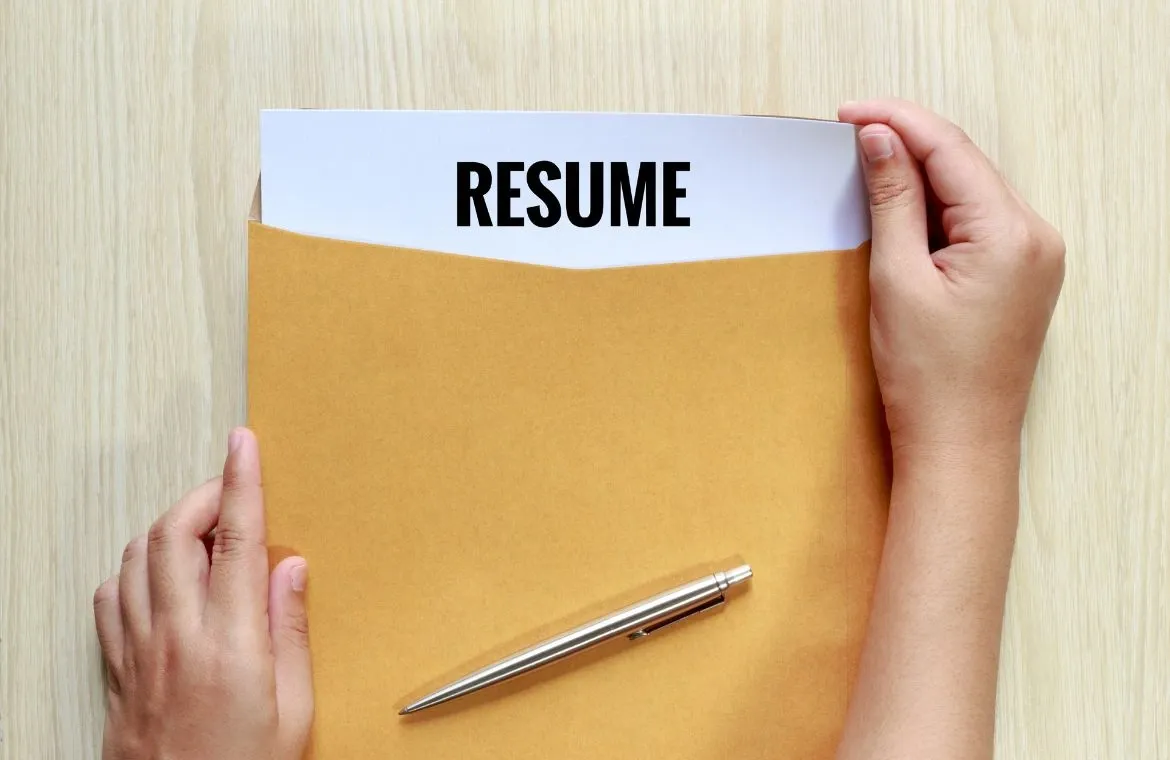Are you a Fresher and want to know how to write your first Resume? Here's your Guide.

Just like a movie trailer gives a glimpse of the story without revealing it all, your resume is a preview of what you bring to the table. Done right, it will make employers curious enough to call you for the main show, which is the interview.
You can craft a compelling Resume even without work experience. The task might look daunting at first, but it's not as hard as you think. Your lack of professional background shouldn't stop you from creating a Resume that shows employers what you're capable of.
We'll guide you step by step to structure your Resume, showcase your skills, and present your educational achievements in a way that leads to interviews.
Why is building a resume important even if you are a fresher?
Your resume creates the first connection between you and future employers. It builds a bridge to career opportunities. The document plays a significant role for freshers since their chances of getting shortlisted depend on their Resume. A well-laid-out and precise resume helps you clear these screening steps. Your resume decides if you move forward to interviews, where you can state your qualifications clearly.
How to build a Resume with no prior experience?
Building a powerful resume without work experience needs smart planning and careful presentation. Your resume speaks for you in the job market, which makes its structure and format significant elements.
1. Start with a clear structure
Your resume should have sections for contact information, a brief professional summary, education details, skills, and extras like volunteer work or projects. A dedicated skills section showcases your capabilities effectively when you lack traditional work experience. Note that your education should take centre stage instead of the typical work experience section.
2. Choose the right format for freshers
The functional resume format works best for candidates without experience. While chronological formats focus on employment history, functional resumes showcase your skills and transferable abilities. You might also see value in a reverse-chronological format that displays your education and achievements. The format you pick should align with your target industry's requirements.
3. Use a professional font and layout
Pick clean, professional fonts like Arial, Calibri, or Times New Roman in 10-12 point size for body text. Make section headings slightly larger at 14-16 points to create visual hierarchy. Keep consistent 1-inch margins on all sides and use enough white space to enhance readability. Your layout should stay ATS-friendly by avoiding complex graphics or tables that could confuse applicant tracking systems.
The Must-Have Ingredients for an Impressive Resume
1. Highlighting Education
For freshers, education forms the backbone of a resume, often compensating for the lack of work experience. A well-structured education section reflects your knowledge base and academic strengths to potential employers.
- Include your degree, major, and graduation date.
Your education section should clearly display your full degree name with specialisation/major, university name with location, and graduation year.
- List relevant coursework
You can showcase relevant coursework in several formats:
- Single-column list format
- Multi-column format grouped by skill areas
- Detailed format with brief descriptions of key projects or learnings
- Showcase academic achievements
Your standout academic accomplishments can prove your potential. Academic honours like Dean's List, scholarships, or graduating cum laude deserve mention.
- Mention certifications or online courses
You should place certifications strategically, right after your education details if they directly relate to the job.
2. Emphasising Skills
Your skills become your main advantage when you don't have professional experience. A good presentation of these skills can boost your chances of getting interviews by a lot.
- Identify relevant skills from job descriptions
Job postings in your target field reveal the skills employers value most. Employers think critical thinking is somewhat or very important. Strong communication skills and teamwork rank high among the requirements for most entry-level positions. You should look through several job listings to find common skills that match what you can do.
- Include both technical and soft skills
Hard skills (specific, measurable abilities) need to be balanced with soft skills (personal attributes). Technical roles need more hard skills, while customer-facing jobs might need more soft skills. Real examples of how you used these skills in academic projects or volunteer work make the biggest difference.
3. Showcasing Relevant Experience
You probably have valuable experiences worth adding to your Resume, even without a regular job. These different experiences can show employers the workplace skills they want.
- Volunteer work & Extracurricular activities
Adding volunteer positions shows you want to help others and work without pay. And Student government roles show your leadership potential clearly.
- Personal projects, internships or part-time jobs
Personal projects show you can get things done without someone telling you what to do. A few standout projects give real examples of what you can do. And List internships just like regular jobs - include your title, where you worked, when you worked, and what you did.
Extra Touches That Make a Difference
Your Resume's final refinements can make the difference between landing an interview and facing rejection. These finishing touches often determine which applications succeed and which get overlooked.
- Tailor your resume for each job: To cite an instance, when a job posting mentions "team coordination" instead of "teamwork," use their exact terminology.
- Pick a clean and simple format: A simple, well-laid-out format will give recruiters quick access to the information they need.
- Write a short summary about your goals: Add a brief career objective aligning skills with employer needs.
Proofread carefully to avoid errors: Don't let small mistakes undermine all your hard work. Reading your resume aloud helps catch awkward phrasing and repetitive words.
Going Beyond
Your job application becomes stronger with two powerful tools besides your Resume: a well-crafted cover letter and a thoughtfully curated portfolio. These elements can make all the difference, especially when you don't have much work experience.
The Main purpose of a cover letter
A cover letter introduces you personally to potential employers. It gives you a chance to showcase your strengths even without relevant job experience. You can highlight soft skills from extracurricular activities, educational courses, or volunteering.
What to include in a cover letter…?
Your cover letter should have these key components:
- A header with your contact information at the top right
- The employer's name and contact person on the left
- A clear reference line mentioning the specific position
- A brief introduction that grabs attention (2-3 sentences)
- A body section highlighting your relevant skills and education
- A closing paragraph to ask for an interview
Add a portfolio link if you have projects
You can create free portfolios on GitHub, Behance, WordPress, Blogger, or Tumblr. Pick a platform that best fits your industry to impress hiring managers with your work.
Using AI Tools can help in building a resume for Freshers
AI-powered resume builders have become game-changers for freshers who struggle to create their first Resume.
Also Read: How AI is reshaping Job opportunities for freshers?
Top tools to try
- Canva Resume Builder – Offers hundreds of designer-made, customizable templates with an intuitive drag-and-drop editor. Ideal for creating visually appealing resumes.
- Zety Resume Builder – Helps build professional, ATS-friendly resumes with step-by-step guidance, expert content suggestions, and multiple download formats.
- Novorésumé – Streamlined and beginner-friendly, it offers polished templates, a modern interface, and content optimization tools.
How to customise templates effectively?
Clean templates with proper spacing create maximum impact. Professional fonts like Arial, Calibri, or Helvetica work best in a 10-12pt size for body text. Subtle colour accents can highlight key sections while keeping the document professional.
Conclusion
A strong resume leaves hiring managers excited for what’s next, that is, the interview, where you finally get the chance to deliver the full story. If your resume is the teaser, the interview is the full feature film, and you’re both the director and the lead actor. The way you present yourself in those few pages determines whether employers will buy a ticket to see the rest of your journey.
Done right, your resume becomes the opening act of your professional blockbuster. Keep it sharp, engaging, and authentic, and you’ll leave employers waiting for what you can truly deliver.
Remember, “Every career begins with a small ignition, make your resume the spark that lights it.”
Frequently Asked Questions
Q1. How can I create a Resume without work experience?
Focus on highlighting your education, skills, and any relevant activities or projects. Include a strong objective statement, emphasise your academic achievements, and showcase any volunteer work or extracurricular activities that demonstrate your abilities.
Q2. How can I make my Resume stand out as a fresher?
Choose a clean, professional format and tailor your Resume to each job application. Use action verbs to describe your skills, create a dedicated skills section, and emphasise your education and any relevant projects or achievements. Consider adding a short summary of your career goals.
Q3. What can I substitute for work experience on my Resume?
Include volunteer work, extracurricular activities, personal projects, and any leadership roles you've held. These experiences can demonstrate valuable skills such as teamwork, communication, and initiative. Also, highlight relevant coursework and academic achievements.
Q4. Should I include a cover letter with my Resume if I have no work experience?
Yes, a well-crafted cover letter can significantly strengthen your application. Use it to highlight your enthusiasm, explain why you're interested in the position, and elaborate on how your skills and experiences make you a good fit for the role, even without formal work experience.

TalentSprint
TalentSprint is a leading deep-tech education company. It partners with esteemed academic institutions and global corporations to offer advanced learning programs in deep-tech, management, and emerging technologies. Known for its high-impact programs co-created with think tanks and experts, TalentSprint blends academic expertise with practical industry experience.



